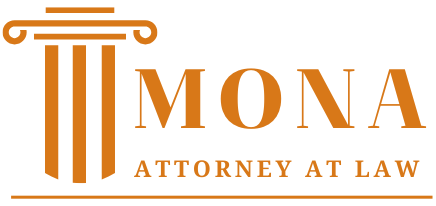Legal Risks and Solutions in Real Estate Purchase
When purchasing property in Turkey, whether as a foreign investor or a local buyer, it’s essential to be aware of the potential legal risks and how to mitigate them. The real estate market can offer substantial returns, but without the proper legal safeguards, buyers may face issues that could turn an investment into a costly mistake. Here’s a detailed look at the main legal risks involved in real estate transactions and the steps you can take to protect yourself.
1. Title Deed (Tapu) Issues
One of the most critical aspects of any real estate transaction in Turkey is the title deed (tapu). It serves as the official document proving ownership of the property. However, there are common risks associated with title deeds, including:
- Fake or Forged Title Deeds: In some cases, fraudulent individuals may attempt to sell properties using fake documents. Always verify the authenticity of the title deed at the Land Registry Office.
- Shared Ownership (Hisseli Tapu): If the property has multiple owners, each with a share (hisseli tapu), it may complicate the sale process. All co-owners must agree to the sale.
- Encumbrances and Liens: Properties may have existing mortgages, liens, or other restrictions (ipotek or şerh). These must be cleared before the sale, as they could become the buyer’s responsibility.
Solution:
To avoid title deed issues, conduct a thorough title search at the Land Registry Office and request a certified copy of the tapu. It’s advisable to engage a legal expert to verify the legitimacy of the document and check for any encumbrances.
2. Zoning and Land Use Regulations
Zoning laws in Turkey regulate how land and buildings can be used (e.g., residential, commercial, agricultural). Violating these regulations can lead to severe legal consequences, including demolition orders or fines.
Common Risks:
- Purchasing a property intended for agricultural use but planning to develop it for residential or commercial purposes.
- Buying property in an area designated as a protected zone (koruma alanı), where construction is restricted or prohibited.
Solution:
Before purchasing, verify the zoning status of the property through the local municipality (belediye) and ensure it aligns with your intended use. Legal advice can help confirm the property’s compliance with local planning regulations.
3. Incomplete or Unauthorized Construction
In Turkey, some properties are sold without proper building permits or completion certificates (iskan belgesi). Buying such a property can lead to legal disputes and financial losses, as the property may not meet safety and building standards.
Risks:
- Lack of a completion certificate may prevent the buyer from legally using the property.
- Unapproved construction projects might face legal action from local authorities.
Solution:
Ensure that the property has all necessary building permits and a completion certificate before purchasing. This can be verified at the municipality’s building department. A lawyer can assist in obtaining and reviewing these documents.
4. Payment and Contractual Issues
The sales contract (satış sözleşmesi) is a crucial legal document that outlines the terms and conditions of the real estate transaction. Poorly drafted contracts or unclear payment terms can lead to disputes.
Common Issues:
- Unclear terms regarding the payment schedule or currency fluctuations.
- Hidden clauses that may favor the seller, such as non-refundable deposits if the buyer decides to withdraw.
- Misrepresentation of the property’s condition or features in the contract.
Solution:
Always have a legal professional review the sales contract before signing. They can ensure that the terms are clear, fair, and protect your rights as a buyer. It’s also recommended to make payments through secure, traceable methods, such as bank transfers.
5. Legal Due Diligence and Professional Assistance
Conducting proper due diligence is essential for any real estate purchase. This involves verifying the property’s legal status, ensuring there are no legal disputes, and confirming compliance with all regulations.
Tips for Legal Due Diligence:
- Hire a qualified real estate lawyer who is familiar with local laws and regulations.
- Verify that the seller is the legitimate owner and has the legal right to sell the property.
- Check for any ongoing legal disputes or claims against the property.
Conclusion Investing in real estate in Turkey can be highly rewarding, but it comes with its own set of legal challenges. By understanding the potential risks and taking the necessary legal precautions, buyers can protect their investments and ensure a smooth transaction.
At Mona Law, we offer comprehensive legal services to assist you throughout the entire property purchase process. Our experienced team can help you conduct due diligence, review contracts, and navigate the complexities of Turkish real estate law, ensuring your investment is secure and compliant.

